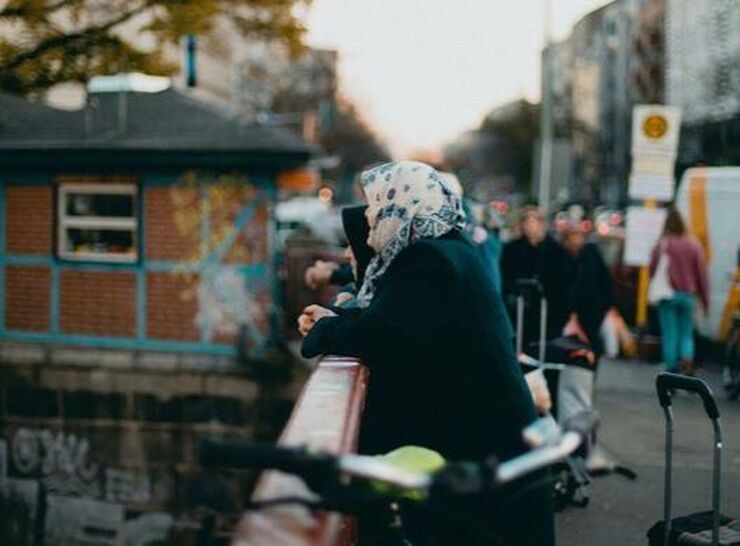|
|
|
The fact that some second-generation immigrants were involved in the brutal terror attacks in major European cities such as in Paris in 2015 and Brussels and Munich in 2016 exacerbated xenophobia among politicians and the broad public. These terrible incidents increased scholarly interest in the integration of second-generation immigrants further, and heightened anti-immigrant and anti-Islamic sentiments across Europe and far-right.
In addition to the terror attacks, economic restructuring and growing poverty amongst the working-class have also resulted in the rise of far-right in Germany. This has become visible with the Patriotic Europeans against the Islamisation of the West (PEGIDA) movement and strengthening of the Alternative For Germany (AFD). In this regard, the host society often tends to relate the Turkish second generation's social and economic disintegration to marginalisation and ‘Islamisation’. In such a context, studying the stigmatisation of ethnic minorities and immigrant groups reveals discrimination, stratification and ethnic boundaries. Along similar lines, the destigmatisation strategies of minorities, how they respond to the majority to maintain their dignity, achieve recognition and invest in their integration, are equally revealing. My Identities article, 'Disadvantaged, but morally superior: ethnic boundary making strategies of second-generation Turkish immigrant youth in Germany', examines how social, political and structural changes in Germany increase anti-Muslim, anti-immigrant and anti-refugee sentiments. By drawing on in-depth interviews and ethnographic data with twenty second-generation Turkish immigrant youth, the article reveals the kind of stigmatisations Turkish immigrants (the largest Muslim group) face, and, more importantly, how they deal with these stigmatisations in their daily lives.
First, I presented a historical account of Turkish immigration to Germany, indicating specific breaking points in their public image. The entrance of a high number of Turks as guest-workers in the 1960s has proletarianised their image as 'ethnic other'. In years following the oil crisis in 1973, as it became clear that the Turkish immigrants would not return, the German governments commenced their ‘domestication’ policies. The principle of blood (ius sanguinis) was modified into the principle of territory (ius soli) in the 2000 German citizenship law, which made it possible for children of immigrants to acquire German citizenship, but only if they renounced their parents’ nationality. However, this reform intensified concerns regarding the incompatibility between Muslim Turkish immigrants and the society’s ‘guiding culture’ (Leitkultur), which increasingly culturalised and ethnicised the concept of Islam in Germany.
9/11 has further marginalised and criminalised Islam and shifted the public image of Turkish immigrants from ‘ethnic problem’ to religious ‘other’. In mass media and political discourse, Islam – depicted with macho males, gender inequality and violence against women – has been portrayed as anathema to western cultural values. This change of image of Turkish immigrants from 'ethnic other' to 'religious other' thickened the boundaries between this group and the majority significantly; the 'ethnic other' from Anatolian villages indicates a group who cannot integrate, but the ‘religious other’ represents the Turkish immigrants as a Muslim group that does not want to integrate anymore. Second, I examine the restrictive citizenship policies and exclusionary public discourses from the secondary literature, and present the urban milieu in which my respondents live. I statistically show the correlations between socioeconomic and residential segregation between Turks and Germans in the city and ethnic segmentation in the education system. My qualitative findings illustrated that the youth were conscious of the ethnic boundaries and actively engaged in transforming them. The great majority of my respondents asserted the moral inferiority of the majority group through the strategy of normative inversion. They reversed stratified ethnic boundaries and stigmatized Germans through a set of negative ethnic stereotypes by associating negative values such as being cold, individualistic, self-centred, stingy and untrustworthy with German identity, and positive values such as honest, loyal, open-hearted, generous and trustworthy with Turkish identity. Some other respondents employed equalising strategies such as universalising, eliding the importance of ethnicity by referring to personal characteristics such as being friendly as standards of worth. Few others resorted to another equalising strategy, contingent detachment, separating themselves from their ethnic group, and in this way cope with the collective stigma and individually cross the ethnic boundaries. Notably, the respondents who employed equalising strategies differ from the others in terms of constant contacts with Germans and weak attachment to ethnic peers. In some cases, they have individual 'resources' such as having blond hair and fair skin. I argue that individuals' destigmatisation strategies are strongly linked to the degree to which they are exposed to ethnic boundaries. That is, those who experienced thicker boundaries tended to engage in normative inversion; in contrast, those who were less exposed to these boundaries in their biographies tended to engage in equalising strategies. My findings substantiate the importance of inclusive immigration policies and welcoming structural and cultural conditions for the smooth integration of second-generation immigrant youth. They also show that the integration difficulties that are sometimes attributed to immigrants’ culture are usually immigrants’ responses to the lack of these conditions in host societies.
Blog post by Çetin Çelik, Koç University, Turkey
Read the full article: Çelik, Çetin. Disadvantaged, but morally superior: ethnic boundary making strategies of second-generation male Turkish immigrant youth in Germany. Identities: Global Studies in Culture and Power. DOI: 10.1080/1070289X.2017.1305218
0 Comments
Your comment will be posted after it is approved.
Leave a Reply. |
|
Explore Identities at tandfonline.com/GIDE |
|
The views and opinions expressed on The Identities Blog are solely those of the original blog post authors, and not of the journal, Taylor & Francis Group or the University of Glasgow.

